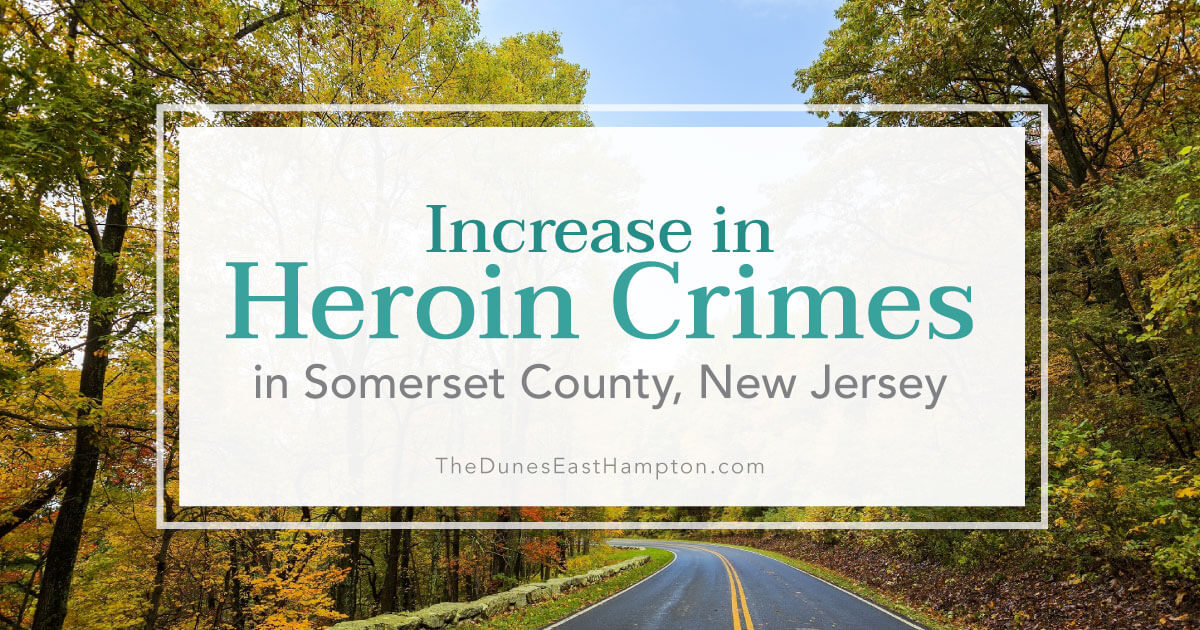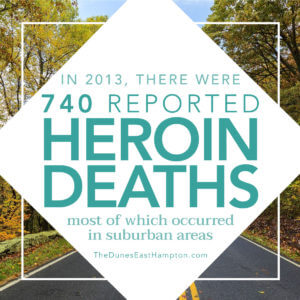
There has been an ongoing problem with substance abuse in the United States for decades. What was once a problem of urban areas and big cities has made its way to small towns and suburbia, and Somerset County, NJ has fallen victim to this epidemic as well. In 2013, there were 740 reported heroin deaths in the county – most of which occurred in suburban areas. Even worse, these numbers are conservative estimates.
As of March 2016, New Jersey had a heroin death rate roughly 3.5 times the national average. Between 2004 and 2016, over 5,200 New Jersey residents died from heroin overdoses.
In Somerset County, the numbers are equally grim. The Office of the State Medical Examiner reports that the number of heroin-related deaths has jumped every year since 2011. In 2014 alone 28 people fatally overdosed from heroin or another kind of opioid. In some instances the cause of death, e.g. heart failure, may be due to heroin dependency but may not be recorded as a heroin-related death. For this reason, it is probable that the incidence of drug-related deaths is actually higher than reported.
Increase in Crime Rates Due to Heroin Epidemic
 It’s no secret that heroin has long been associated with increased rates of crime. Many experts connected the crime waves of the 1980s and 1990s with increased use of drugs. In fact, they suggest that even when use of other illicit drugs is much higher, heroin use is a better predictor of crimes spikes.
It’s no secret that heroin has long been associated with increased rates of crime. Many experts connected the crime waves of the 1980s and 1990s with increased use of drugs. In fact, they suggest that even when use of other illicit drugs is much higher, heroin use is a better predictor of crimes spikes.
Unfortunately, this coincides with what is happening in Somerset County. In 2013, violent crime was up 4%, which may not sound like much, but considering the area’s population, it means more innocent people are touched by these crimes. The 2013 Uniform Crime Reports stated that there were eight more violent crimes than the previous year, crimes that could cover rape, aggravated assault, robbery and the three murder committed that year.
Other noteworthy occurrences of crime in Somerset County include:
- 16 reported rapes.
- Cases of aggravated assault rose from 92 to 103.
- The value of stolen property in the county was at $9.2 million.
- Non-violent crimes rose 8%.
Unfortunately, once a town begins to battle drug addiction and dependency, it must be prepared to battle the crime wave that inevitability accompanies it.
Fear in Suburbia
People who live in the area are obviously concerned, and many have been touched by the tragedies that accompany the high rates of addiction. Somerset Hills, a suburban community, has been so distraught by the rise in drugs and crime, they have come together to help end the problem through a program called the “movement.” Because people in the Somerset Hills community have the financial resources to fight the wave of heroin and opiate-related death, they wanted to take on change from the inside out.
The leaders of the movement modeled it on Governor Chris Christie’s plan in the 2014 report – Confronting New Jersey’s NEW Drug Problem: A Strategic Action Plan to Address a Burgeoning Heroin/Opiate Epidemic Among Adolescents and Young Adults. There are nearly 100 volunteers – from elected officials to parents – hosting town-hall meetings to report progress.
These people want to take back their community from encroaching crime and the clutches of addiction. Their work on the forefront of this cause could be a game-changer, but for those in Somerset County already addicted, it’s too little too late.
Countermeasures in Somerset County
Lawmakers at the federal, state, and local levels have all recognized the dangers of the ongoing opioid addiction crisis and have implemented various tactics to mitigate the damage. Doctors who prescribe opioid painkillers must now take a training course before reapplying for a prescription license. Doctors must take care to fully inform patients about the inherent risks of opioid medication, including addiction and overdose. Patients should only take these drugs as instructed by their doctors and only for the time specified.
In the meantime, those who have come to hospitals and ERs after overdoses must be treated for more than the overdose. Awareness of treatment options offers hope for many suffering from addiction.







